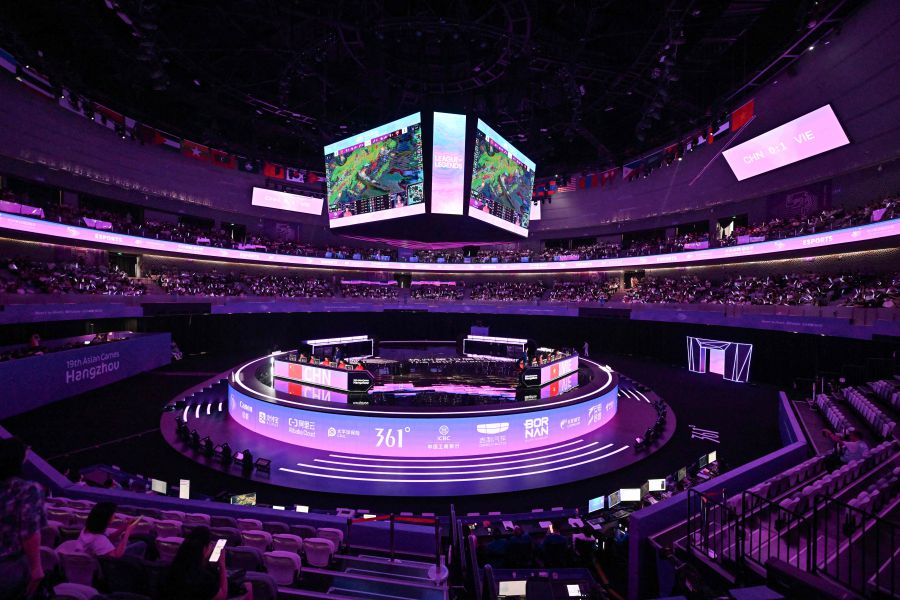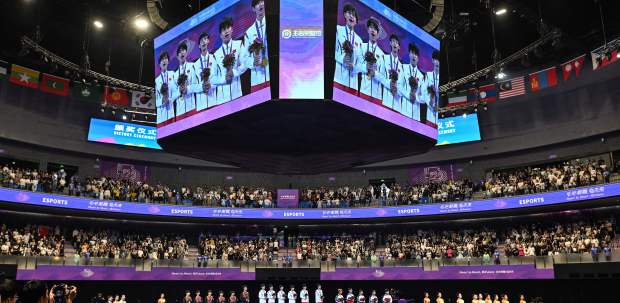KUALA LUMPUR: Picture this. Thousands of people inside a stadium cheering on their gaming unathletic-looking heroes who click to victory at the Asian Games in Hangzhou.
But unlike "real-life traditional sports", these athletes use only the power of their thumbs without really depending on muscles and sinews.
ESports is a growing industry, attracting millions of players worldwide who chose not to abuse their bodies in training to become the world's best in traditional sports, and raking in more than US$1 billion (RM4.7 billion) in revenue each year.
China fans are crazy about eSports with their Asian Games venues filled to the brim daily with athletes on the podium console just clicking away on their gadgets.
And fans can watch the action of mosquito-sized characters on a giant TV screen in front of the playing console.
ESports is making its debut at the Hangzhou Asian Games with medals offered in Arena of Valor, Dota 2, Dream Three Kingdoms 2, EA Sports FC Online, Hearthstone, League of Legends, PUBG Mobile / Peacekeeper Elite and Street Fighter V: Champion Edition.
But does eSports really belong to the Asian Games or Olympics?
Would you compare the heroics of Usain Bolt and Lionel Messi to the world No. 1 in, for example, Arena of Valor or Street Fighter?
While athletes like Bolt train for years to excel at the Olympics and World Championships, eSports gamers, who mostly look nerdy, are only using the power of their fingers to become champions.
Of course, there is big money in eSports, Malaysia's Arena of Valor squad could play in the US$10 million Pro League after impressing gamers by winning a silver medal in Hangzhou.
The Pro League is definitely lucrative. Gamers can become instant millionaires in a short period, just by sitting on a chair and playing games.
And the prize money does not include endorsement and sponsorship-deals a gamer can earn by becoming a top player.
Gamers are probably worshipped by gaming followers, but little is known about them worldwide.
However, what they earn is no laughing matter. A top gamer probably rakes in more prize money than a competitor in popular sports like athletics, badminton and field hockey.
In modern societies, most children stay away from traditional sports, preferring to play games. The problem is kids do not like to sweat.
This scribe encourages his son to play football, badminton and hockey, but sadly the eight-year-old prefers Minecraft and developing his own games. And because of his love for video games, his eyesight has gone bad and he now wears spectacles.
If eSports haters do not take quick action, the Asian Games and Olympics may one day not see "real-life" sports.
Cycling velodromes might be subbed out for static bikes, football matches replaced by big screens, and sailing races relegated from open seas to the inside of stadiums.
The future of traditional sports looks bleak as there will definitely come a time when participation and popularity would decline.
ESports should just be in the gaming industry, not a medal event in the Asian Games and other multi-sport events.
Perhaps a multi-sport version for eSports could be held for gamers vying for international recognition and fame.
Ajitpal Singh is the Sports Editor of NST






